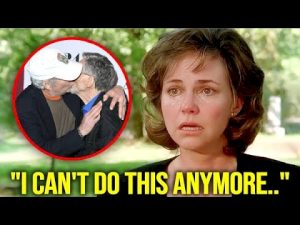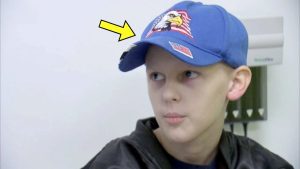Harry Belafonte, a pioneering actor and singer who later became an activist, humanitarian, and voice for human rights throughout the world, has passed away. He was 96.
According to Paula M. Witt of the public relations company Sunshine Sachs Morgan & Lylis, Belafonte passed away on Tuesday from congestive heart failure at his New York residence with his wife Pamela by his side.
Many people still recognize Belafonte for his hallmark song, “Banana Boat Song (Day-O),” with its shout of “Day-O! Daaaay-O.” He was one of the first Black entertainers to achieve a large audience on film and to sell a million albums as a vocalist.
He stands as the model and the epitome of the celebrity activist. Few kept up with Belafonte’s time and commitment and none his stature as a meeting point among Hollywood, Washington and the civil rights movement.
Belafonte not only participated in protest marches and benefit concerts, but helped organize and raise support for them. He worked closely with his friend and generational peer the Rev. Martin Luther King Jr., often intervening on his behalf with both politicians and fellow entertainers and helping him financially. He risked his life and livelihood and set high standards for younger Black celebrities, scolding Jay Z and Beyonce for failing to meet their “social responsibilities,” and mentoring Usher, Common, Danny Glover and many others. In Spike Lee’s 2018 film “BlacKkKlansman,” he was fittingly cast as an elder statesman schooling young activists about the country’s past.
Belafonte’s friend, civil rights leader Andrew Young, would note that Belafonte was the rare person to grow more radical with age. He was ever engaged and unyielding, willing to take on Southern segregationists, Northern liberals, the billionaire Koch brothers and the country’s first Black president, Barack Obama, whom Belafonte would remember asking to cut him “some slack.”
Belafonte responded, “What makes you think that’s not what I’ve been doing?”
Belafonte had been a major artist since the 1950s. He won a Tony Award in 1954 for his starring role in John Murray Anderson’s “Almanac” and five years later became the first Black performer to win an Emmy for the TV special “Tonight with Harry Belafonte.”
In 1954, he co-starred with Dorothy Dandridge in the Otto Preminger-directed musical “Carmen Jones,” a popular breakthrough for an all-Black cast. The 1957 movie “Island in the Sun” was banned in several Southern cities, where theater owners were threatened by the Ku Klux Klan because of the film’s interracial romance between Belafonte and Joan Fontaine.
His “Calypso,” released in 1955, became the first officially certified million-selling album by a solo performer, and started a national infatuation with Caribbean rhythms (Belafonte was nicknamed, reluctantly, the “King of Calypso″). Admirers of Belafonte included a young Bob Dylan, who debuted on record in the early ’60s by playing harmonica on Belafonte’s “Midnight Special.”
“Harry was the best balladeer in the land and everybody knew it,” Dylan later wrote. “He was a fantastic artist, sang about lovers and slaves — chain gang workers, saints and sinners and children. … Harry was that rare type of character that radiates greatness, and you hope that some of it rubs off on you.”
Belafonte befriended King in the spring of 1956 after the young civil rights leader called and asked for a meeting. They spoke for hours, and Belafonte would remember feeling King raised him to the “higher plane of social protest.” Then at the peak of his singing career, Belafonte was soon producing a benefit concert for the bus boycott in Montgomery, Alabama that helped make King a national figure. By the early 1960s, he had decided to make civil rights his priority.
“I was having almost daily talks with Martin,” Belafonte wrote in his memoir “My Song,” published in 2011. “I realized that the movement was more important than anything else.”
The Kennedys were among the first politicians to seek his opinions, which he willingly shared. John F. Kennedy, at a time when Blacks were as likely to vote for Republicans as for Democrats, was so anxious for his support that during the 1960 election he visited Belafonte at his Manhattan home. Belafonte schooled Kennedy on the importance of King, and arranged for them to speak.
“I was quite taken by the fact that he (Kennedy) knew so little about the Black community,” Belafonte told NBC in 2013. “He knew the headlines of the day, but he wasn’t really anywhere nuanced or detailed on the depth of Black anguish or what our struggle’s really about.”
Belafonte would often criticize the Kennedys for their reluctance to challenge the Southern segregationists who were then a substantial part of the Democratic Party. He argued with Attorney General Robert F. Kennedy, the president’s brother, over the government’s failure to protect the “Freedom Riders” trying to integrate bus stations. He was among the Black activists at a widely publicized meeting with the attorney general, when playwright Lorraine Hansberry and others stunned Kennedy by questioning whether the country even deserved Black allegiance.
“Bobby turned red at that. I had never seen him so shaken,” Belafonte later wrote.
In 1963, Belafonte was deeply involved with the March on Washington. He recruited his close friend Sidney Poitier, Paul Newman and other celebrities and persuaded the left-wing Marlon Brando to co-chair the Hollywood delegation with the more conservative Charlton Heston, a pairing designed to appeal to the broadest possible audience. In 1964, he and Poitier personally delivered tens of thousands of dollar to activists in Mississippi after three “Freedom Summer” volunteers were murdered — the two celebrities were chased by car at one point by members of the KKK. The following year, he brought in Tony Bennett, Joan Baez and other singers to perform for the marchers in Selma, Alabama.
When King was assassinated, in 1968, Belafonte helped pick out the suit he was buried in, sat next to his widow, Coretta, at the funeral, and continued to support his family, in part through an insurance policy he had taken out on King in his lifetime.
“Much of my political outlook was already in place when I encountered Dr. King,” Belafonte later wrote. “I was well on my way and utterly committed to the civil rights struggle. I came to him with expectations and he affirmed them.”
King’s death left Belafonte isolated from the civil rights community. He was turned off by the separatist beliefs of Stokely Carmichael and other “Black Power” activists and had little chemistry with King’s designated successor, the Rev. Ralph Abernathy. But the entertainer’s causes extended well beyond the U.S.
He mentored South African singer and activist Miriam Makeba and helped introduce her to American audiences, the two winning a Grammy in 1964 for the concert record “An Evening With Belafonte/Makeba.” He coordinated Nelson Mandela’s first visit to the U.S. since being released from prison in 1990. A few years earlier, he initiated the all-star, million-selling “We Are the World” recording, the Grammy-winning charity song for famine relief in Africa.
Belafonte’s early life and career paralleled those of Poitier, who died in 2022. Both spent part of their childhoods in the Caribbean and ended up in New York. Both served in the military during World War II, acted in the American Negro Theatre and then broke into film. Poitier shared his belief in civil rights, but still dedicated much of his time to acting, a source of some tension between them. While Poitier had a sustained and historic run in the 1960s as a leading man and box office success, Belafonte grew tired of acting and turned down parts he regarded as “neutered.″
“Sidney radiated a truly saintly dignity and calm. Not me,″ Belafonte wrote in his memoir. “I didn’t want to tone down my sexuality, either. Sidney did that in every role he took.″
Belafonte was very much a human being. He acknowledged extra-marital affairs, negligence as a parent and a frightening temper, driven by lifelong insecurity. “Woe to the musician who missed his cue, or the agent who fouled up a booking,″ he confided.





